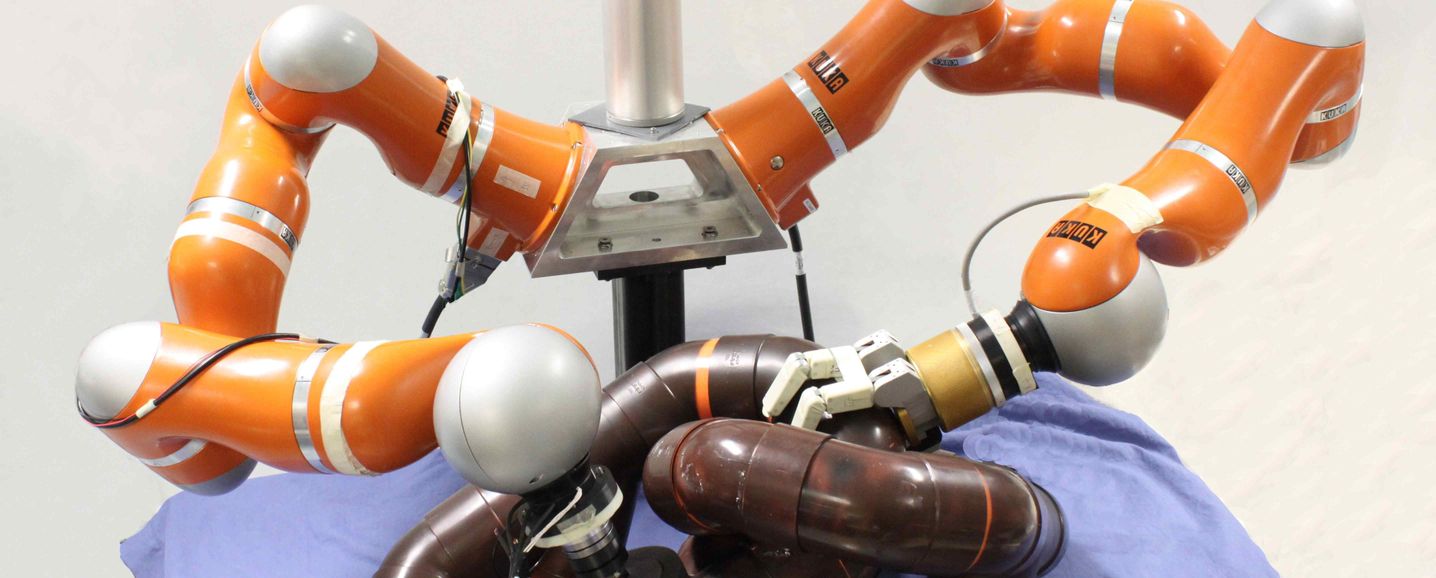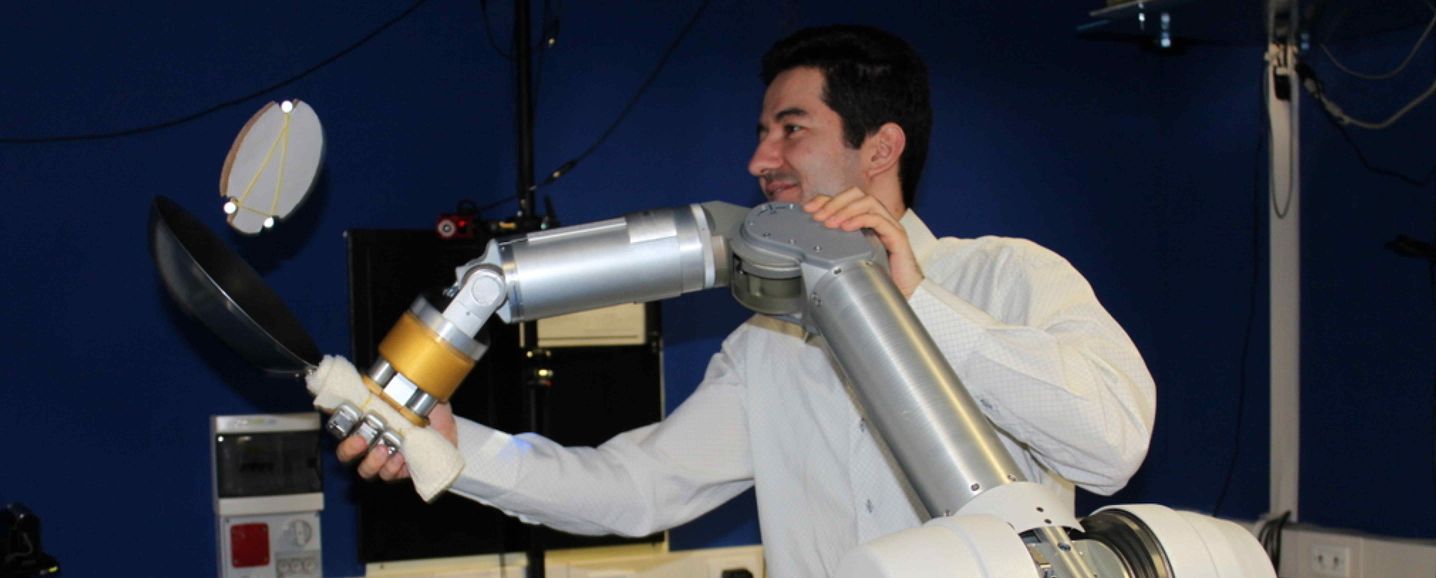The robotics and manufacturing research theme focuses on 3 main areas: robotics, additive manufacturing, and energy. Here we are interested in:
- New ways of controlling robotic systems to be smarter
- Development of new tools and understand to unlock the true potential of additive manufacturing
- Applying 3D printing technologies to help develop higher performance and more robust energy storage/conversion devices
The work spans fundamental science to engineering applications with the underpinning design aspects that enable real world solutions which harness innovations.
Research Areas
Additive manufacturing enables the creation of complex geometries not previously possible though the layer-by-layer fabrication of 3D models.
Current research challenges that the Dyson School of Design Engineering are working on include: design for additive manufacturing, robust design of lattice structures, understanding process parameters on the performance of the end products, the effect of distributed manufacturing and advanced characterisation.
Together with the department of Mechanical Engineering, the department of Earth Science and Engineering, and the Hamlyn Centre for medical robotics, the Dyson School of Design Engineering hosts Imperial College London's Direct Metal Laser Sintering lab (DMLS) which was kindly funded by EPSRC.
This includes two DMLS machines:
- Renishaw AM250
- Concept Laser mLab cusing
Our research into Additive Manufacturing includes:
- Applications of AM to energy storage devices
- Distributed manufacturing enabled through AM
- Design for AM
- New materials
- Intelligent materials with graded properties
We are also part of the recently established Additive Manufacturing Network which co-ordinates additive manufacturing research at Imperial College London.
https://www.imperial.ac.uk/a-z-research/additive-manufacturing/
Energy is an integral part of modern society and developing novel solutions of its generation, storage and use is essential for a low-carbon future. The Dyson School of Design Engineering currently work on: novel lithium-ion batteries, metal air batteries, supercapacitors, hydrogen fuel cells, thermoelectric materials, energy harvesting, domestic ventilation systems and whole system integration of these devices and their manufacturing chains.
Autonomous systems, and in particular – robots, are playing increasingly important role in today’s industry and society. At the Dyson School of Design Engineering we are determined to innovate and push forward the boundaries of existing robotic systems.
Designing the robots of the future requires advances in numerous areas, such as: human-robot interaction (both physical and verbal), human-robot collaboration (incl. natural interfaces and safety issues), human-robot physical synergy (e.g. wearables), new materials for robots (e.g. soft robots), novel control methods (e.g. robust/adaptive/encoderless/kinematic-free control), new applications (e.g. for domestic/household and service robots, for entertainment and competition), improved intelligence (AI and cognition, robot learning of new skills by imitation or self-improvement) and more persistent autonomy (autonomous and semi-autonomous control, adaptive and robust control, resilient machines).
Current robotics research areas include:
- Designing interactive robotic products
- Human-robot collaboration
- Passive and active compliance
- Energy optimisation & harvesting
- Agile and adaptive locomotion
- Dexterous robot manipulation (incl. tactile and dual-arm)
- Online adaptive control & learning control
- Machine learning and Deep learning for robots
- Robot learning of motor skills
- Imitation learning and Reinforcement learning algorithms
- Whole-body control with multiple contacts
- Active sensing and active learning
- Persistent autonomy for mobile robots
- Energy-efficient locomotion (e.g. designing passively-compliant robots)
- Visuospatial skill learning
- Learning reactive behaviour
- Intrinsic motivation for autonomous robots
- Intuitive robot interfaces & visualization
- Haptic devices and haptic interaction
- Kinematic-free/encoderless control of robots
- Safety of human-robot physical interaction
People
Dr. Connor Myant
/prod01/channel_3/media/migration/faculty-of-engineering/connor--tojpeg_1445860338461_x4.jpg)
Dr. Connor Myant
Additive manufacturing, Tribology
Dr. Petar Kormushev
/prod01/channel_3/media/migration/faculty-of-engineering/Petar--tojpeg_1445860499491_x4.jpg)
Dr. Petar Kormushev
Control, Machine learning, Robotics
Professor Peter Childs
/prod01/channel_3/media/migration/faculty-of-engineering/peter--tojpeg_1445860114589_x4.jpg)
Professor Peter Childs
Creativity, Heat transfer, Robotics
Contact us
Dyson School of Design Engineering
Imperial College London
25 Exhibition Road
South Kensington
London
SW7 2DB
design.engineering@imperial.ac.uk
Tel: +44 (0) 20 7594 8888


/prod01/channel_3/media/migration/faculty-of-engineering/billy2--tojpeg_1445860217958_x4.jpg)